Sando's Guide to Undying
Sando
September 21, 2014
Introduction
Ah
 Undying
Undying, bringing death, corruption and confusion to DOTA players everywhere. What the hell is he exactly? He's a giant tanky zombie obviously, but what is his role? How should he be used? Why have I got hardly any HP left? Did he really just heal me?
All of these questions and more will be answered below...
Strengths and Weaknesses
+ Great starting strength and intelligence
+ Incredible early game power
+ Good base armour and movement
+ Great tank
+ Can heal team mates
+ Great pusher and teamfighter
+ Amplifies damage for the rest of the team
- Incredibly bad agility
- Mana issues
- Lacks any form of disable
- Relies on allies for damage output
- Stat gain is poor
- Can be difficult to find a lane for him
Decay

 Decay is an interesting power, and a tremendously effective one at that. When used, any enemy heroes in it's AOE will first have 4 strength each stripped from them, and then a small amount of damage applied.
Decay is an interesting power, and a tremendously effective one at that. When used, any enemy heroes in it's AOE will first have 4 strength each stripped from them, and then a small amount of damage applied.  Undying absorbs the strength ripped from enemies for the next 40 seconds, before reluctantly giving it back. The spell has a relatively short cooldown and can be stacked multiple times.
Undying absorbs the strength ripped from enemies for the next 40 seconds, before reluctantly giving it back. The spell has a relatively short cooldown and can be stacked multiple times.
Now the science bit. Each point of strength is worth 19 HP (and 0.03 health regen but that's kinda irrelevent here) to it's owner. So transfering 4 strength between heroes means that you gain 4 x 19 = 76 HP, and they lose the same amount.
Lets scale it up:
1 hero = 76 HP
2 heroes = 152 HP
3 heroes = 228 HP
4 heroes = 304 HP
5 heroes = 380 HP
6 heroes; oh wait, and no you can't steal from  Meepo clones!
Meepo clones!
Consider that many common intelligence support heroes have 16 starting strength, one  Decay will temporarily remove approx 25% of their max health...for 70 mana. Stack this a few times...
Decay will temporarily remove approx 25% of their max health...for 70 mana. Stack this a few times...
The early multi-target utility of  Decay makes it a phenomonal ability versus trilanes, growing you to almost unkillable size, while making them easy pick offs.
Decay makes it a phenomonal ability versus trilanes, growing you to almost unkillable size, while making them easy pick offs.
HOWEVER, the actual damage inflicted is very minimal, and you basically rely on your allies to go and finish the job, or at least inflict the harassment that will leave enemies on low health when their strength is returned. You are a strength hero, so the stolen strength improves your right click damage.
A little more maths - relative health/healing works on a % basis when you gain or lose maximum health. For example, if we have 500/1000 HP with our  Power Treads set to Strength, we would set them to something else before using our
Power Treads set to Strength, we would set them to something else before using our  Healing Salve.
Healing Salve.
When we disable our Strength, we lose 8 x 19 = 152 max HP, and half of that (76) from our current health (as we were on 50% HP). That means we now have 424/848 HP. Using the 400 heal from our Salve, we now have 824/848 HP. Switching our treads back to strength, we have 972/1000 HP, as we had restored 97% of our health. If we'd used the salve without switching, we would have had 900/1000 HP - so our salve is nearly 20% more effective.
 Decay works like this, but in reverse - any damage inflicted while their strength is reduced will still count for more even once it has been returned.
Decay works like this, but in reverse - any damage inflicted while their strength is reduced will still count for more even once it has been returned.
The great thing about this ability is that tanky heroes and squishy ones alike will suffer. Many tanky heroes rely on that for their playstyle and damage -  Centaur Warrunner ain't gonna enjoy
Centaur Warrunner ain't gonna enjoy 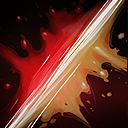 Double Edge very much when you've sapped a bunch of health from him, just as
Double Edge very much when you've sapped a bunch of health from him, just as  Crystal Maiden will be even more paper-like than usual. Obviously strength heroes lose right click damage too.
Crystal Maiden will be even more paper-like than usual. Obviously strength heroes lose right click damage too.
Generally we leave  Decay at level 1 as the increased damage isn't worthwhile compared to the increased mana cost, and we'll have enough difficulty spamming it after a while anyway. If you have a mana battery like
Decay at level 1 as the increased damage isn't worthwhile compared to the increased mana cost, and we'll have enough difficulty spamming it after a while anyway. If you have a mana battery like 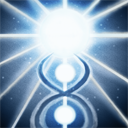 Chakra Magic available, you would seriously consider levelling it more early on, but this is about the only time.
Chakra Magic available, you would seriously consider levelling it more early on, but this is about the only time.
Tombstone
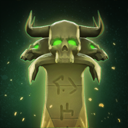
 Tombstone is
Tombstone is  Undying signature power - summoning a huge stone edifice that spawns waves of zombies that attack all enemy units in the area. The zombies may be individually weak, but their numbers and movement slow can bring down weakened heroes, especially if their health drops below a 20/25/30/35% threshold.
Undying signature power - summoning a huge stone edifice that spawns waves of zombies that attack all enemy units in the area. The zombies may be individually weak, but their numbers and movement slow can bring down weakened heroes, especially if their health drops below a 20/25/30/35% threshold.
The  Tombstone lasts between 15-30 seconds, and can be destroyed for a fairly large bounty of 75-150 gold. It's important to position it carefully - it needs to be close enough to spawn zombies (the radius is quite low at early levels), but also so that it can't be easily destroyed. This may be inside trees (it will destroy them the ones it directly placed on, but the rest can still block vision), on high ground, or just generally a bit further away from the centre of the fight.
Tombstone lasts between 15-30 seconds, and can be destroyed for a fairly large bounty of 75-150 gold. It's important to position it carefully - it needs to be close enough to spawn zombies (the radius is quite low at early levels), but also so that it can't be easily destroyed. This may be inside trees (it will destroy them the ones it directly placed on, but the rest can still block vision), on high ground, or just generally a bit further away from the centre of the fight.
 Tombstone is brilliant for big pushes and fights, spawning more zombies the more units are present. However, it has a long cooldown so make sure it's available for these kinds of situations. Obviously it's also much more effective when fighting around creep waves.
Tombstone is brilliant for big pushes and fights, spawning more zombies the more units are present. However, it has a long cooldown so make sure it's available for these kinds of situations. Obviously it's also much more effective when fighting around creep waves.
It combines well with both  Flesh Golem and
Flesh Golem and  Soul Rip. Obviously it provides additional units for
Soul Rip. Obviously it provides additional units for  Soul Rip, and the tomb itself can also be healed by it.
Soul Rip, and the tomb itself can also be healed by it.
 Flesh Golem is a little more complex, but it basically ensures that lots of units in the area are being attacked, and that enemies are also being slowed to allow
Flesh Golem is a little more complex, but it basically ensures that lots of units in the area are being attacked, and that enemies are also being slowed to allow  Undying to get close enough for his plague aura to take hold.
Undying to get close enough for his plague aura to take hold.
Flesh Golem

 Flesh Golem is your ultimate, and yet another power that will require a fair bit of explanation :). Once activated, you transform into an even more fearsome looking member of the undead, and gain a "plague aura" which has the following effects for nearby enemy units:
Flesh Golem is your ultimate, and yet another power that will require a fair bit of explanation :). Once activated, you transform into an even more fearsome looking member of the undead, and gain a "plague aura" which has the following effects for nearby enemy units:
- Increased damage from all sources the closer they are to  Undying (5-35% within 750 units, maximum effect at under 200 units).
Undying (5-35% within 750 units, maximum effect at under 200 units).
-  Undying will heal a % of HIS max HP if they die within range of him (2-10% depending on unit type/Aghs).
Undying will heal a % of HIS max HP if they die within range of him (2-10% depending on unit type/Aghs).
- All enemies slowed by 9%.
Hopefully this ability is starting to make a bit more sense now. You act as a damage amplifier for your team, and get healed when those enemies die. This fits well into your tanking playstyle - you engage at the front, weakening enemies and soakiing up damage for your team. Hopefully, your allies will be getting kills, and you'll be getting healed!
Obviously equipment does help here, with items that reduce the incoming damage you receive, and increase your health.  Decay also helps by boosting your maximum HP - if you can land good ones you can easily be gaining several hundred extra HP every 6 seconds or so in the late game.
Decay also helps by boosting your maximum HP - if you can land good ones you can easily be gaining several hundred extra HP every 6 seconds or so in the late game.
The cooldown is reasonable at 75 seconds, but this is still primarily a team/3v3 fight spell rather than a ganking one. It's also key to note that casting it doesn't make you instantly any tankier than you were before - it's totally reliant on enemies dying nearby. Don't waste it trying to use it as an escape.
Role
Things get a little bit trickier for our pet Zombie here, as he's not the easiest hero to fit into a roster. Generally his tank/utility role suits a #3, or at most a semi-support #4. He's not a hero who needs tons of equipment like a carry (and he lacks the right click to every really do that role), but he does need mana regeneration and tanking options to fulfil his potential.
The issue with picking him as a #3 is that would put him in the offlane role - and while tough and effective against enemy trilanes, with no escape you are running the risk of him being killed off and unable to cope. It's quite situational what lineups you can put him against, and he tends to do better with other heroes to follow up his  Decays.
Decays.
This leaves us with the #4 role. He can certainly soften up enemies and push hard, but he lacks an early slow or disable necessary for most defensive trilanes.  Decay is also less effective with only a single target.
Decay is also less effective with only a single target.
It makes far more sense in 3v3 lanes, and this would usually be as an aggressive rather than defensive trilane (but hell, as long as it's 3v3 we don't care). Suddenly his skillset makes sense - and the numbers present mean early  Soul Rip is effective.
Soul Rip is effective.
As the game progresses  Undying fills multiple niches - tank, damage amplifier, healer, pusher, utility and possibly auras (depending on how tanky he is). This doesn't really change much between his offlane/support roles.
Undying fills multiple niches - tank, damage amplifier, healer, pusher, utility and possibly auras (depending on how tanky he is). This doesn't really change much between his offlane/support roles.
Items
Starting:






We're looking at a fairly standard set of melee offlane or semi-support items. You're likely to be soaking up some damage so plenty of health regeneration is a must, as well as some armour or damage block. A little mana regeneration can help too, although it can be tricky to use if you're competing for hits at all.
Remember to use your health consumables when you HAVEN'T got  Decay stacks if at all possible.
Decay stacks if at all possible.
Core:




 Arcane Boots
Arcane Boots are essential for
 Undying
Undying and help considerably with your mana problems, as well as providing team utility. You could even consider
 Tranquil Boots
Tranquil Boots and a
 Soul Ring
Soul Ring though.
Generally our core is all about sorting out our mana problems, and any extra utility we can get hold of. You'll want to consider some of the extra listed below, quite possibly before finishing your core.
Optional Extras:






All of these items fill particular niches in your early-midgame. The
 Soul Ring
Soul Ring helps alleviate mana problems, but does come with a health cost attached, which I don't like so much on a tank. However, used correctly it can make up for that with
 Decay
Decay stacks.
 Orb of Venom
Orb of Venom gives you a more reliable slow and is good against DoT vulnerable heroes like
 Templar Assassin
Templar Assassin.
The
 Medallion of Courage
Medallion of Courage is a situational support item - for ganking and quick roshans. Don't use the active during fights unless you're convinced it's safe to do.
Finally a casual
 Cloak
Cloak can be good against heavy magic damage, and can be built into a
 Pipe of Insight
Pipe of Insight for the team.
Extensions:






You'll have noticed so far there isn't a huge difference in the kinds of items that offlane and support
 Undying
Undying's can buy. In fact, the difference is pretty moot - you want the same items, and it's the amount of gold you have that determines what you buy. Support/poor
 Undying
Undying's will favour smaller items, while Offlane/rich
 Undying
Undyings prefer to go for bigger items.
 Blade Mail
Blade Mail is obviously a great tanking item - you can turn the damage people inflict on you back of them. Especially useful if you're being pushed down faster than opponents are dying - it can buy you a few seconds to get those heals in.
 Mekansm
Mekansm isn't really your first choice item, and it can be a little slow by the time you buy it due to your
 Arcane Boots
Arcane Boots. However, it's still a great team and survivability item, and you should pick it up if nobody else does.
 Pipe of Insight
Pipe of Insight - this is more like it. Lets you soak up more magic damage, and also provide more protection for your team. The rapid health regeneration is a big plus on a hero as tanky as you can be.
 Vladmir's Offering
Vladmir's Offering comes a little later in most games, and is purely about team utility rather than anything you particularly need. Makes sense if you've already got a
 Ring of Basilius
Ring of Basilius and can be very effective.
 Ghost Scepter
Ghost Scepter I would recommend more for support
 Undying
Undyings who are struggling to survive in the tanking role against heavy physical damage. Lets you bring the full brunt of your aura onto them while keeping you alive.
 Rod of Atos
Rod of Atos is good for the richer zombie - lots of HP and intelligence, plus a strong slow, all at a very cost effective price. Generally this and
 Arcane Boots
Arcane Boots will sort all your mana problems out.
Luxury:






You scale pretty well throughout the game, and although 4 strength may not be a big deal now, zombies are still annoying, and your ult still works well. Late game for you is all about tanking and auras, with a little bit of utility thrown in. You want to cause maximum disruption and survive as long as possible to help inflict damage.
 Scythe of Vyse
Scythe of Vyse - still a great item,
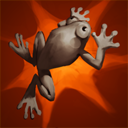 Hex
Hex is always useful.
 Heaven's Halberd
Heaven's Halberd provides survivability and a great active against strong carries.
 Necronomicon
Necronomicon provides pushing power and invisibility detection.
 Shiva's Guard
Shiva's Guard is another good tanking item, and although you don't particularly need the intelligence at this point, it's still nice. You should be ideally placed to benefit from both the active and aura.
 Heart of Tarrasque
Heart of Tarrasque is simply great on him. The sheer number of HP available and the speed you can recover them are what knocks the
 Bloodstone
Bloodstone away for me on this hero.
 Aghanim's Scepter
Aghanim's Scepter is interesting, and a difficult item to decide to pickup. It provides a +5% boost to both the minimum and maximum damage amplification from your ult - and also boosts the health regen from 6% to 10% for heroes, and 2% to 3% for units. The problem with this is that it's not a very "visible" change and makes it difficult to know how effective it is.
Conclusion
Hopefully all that info has given you a much better understanding of a frequently underused and confusing hero.  Undying has a strange mixture of skills and strengths that tend to lend themselves to niche picks and particular scenarios.
Undying has a strange mixture of skills and strengths that tend to lend themselves to niche picks and particular scenarios.
He's an extremely strong early game hero, but can also scale effectively into the late game. His pushing and teamfighting skills can be extremely strong, but rely on good teamwork to be truly worthwhile.
His biggest issues are his lack of "standard" crowd control, the situational effectiveness of his skills and his lack of damage output when alone. Not having an effective escape skill means that you're reliant on playing around your team to get the job done, and can limit his solo offlaning options.
However, he's monstrously powerful when played correctly and in concert with your team, and is capable of causing severe problems for the opposition.
 Tango
Tango










































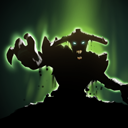














Quick Comment (7) View Comments
You need to log in before commenting.